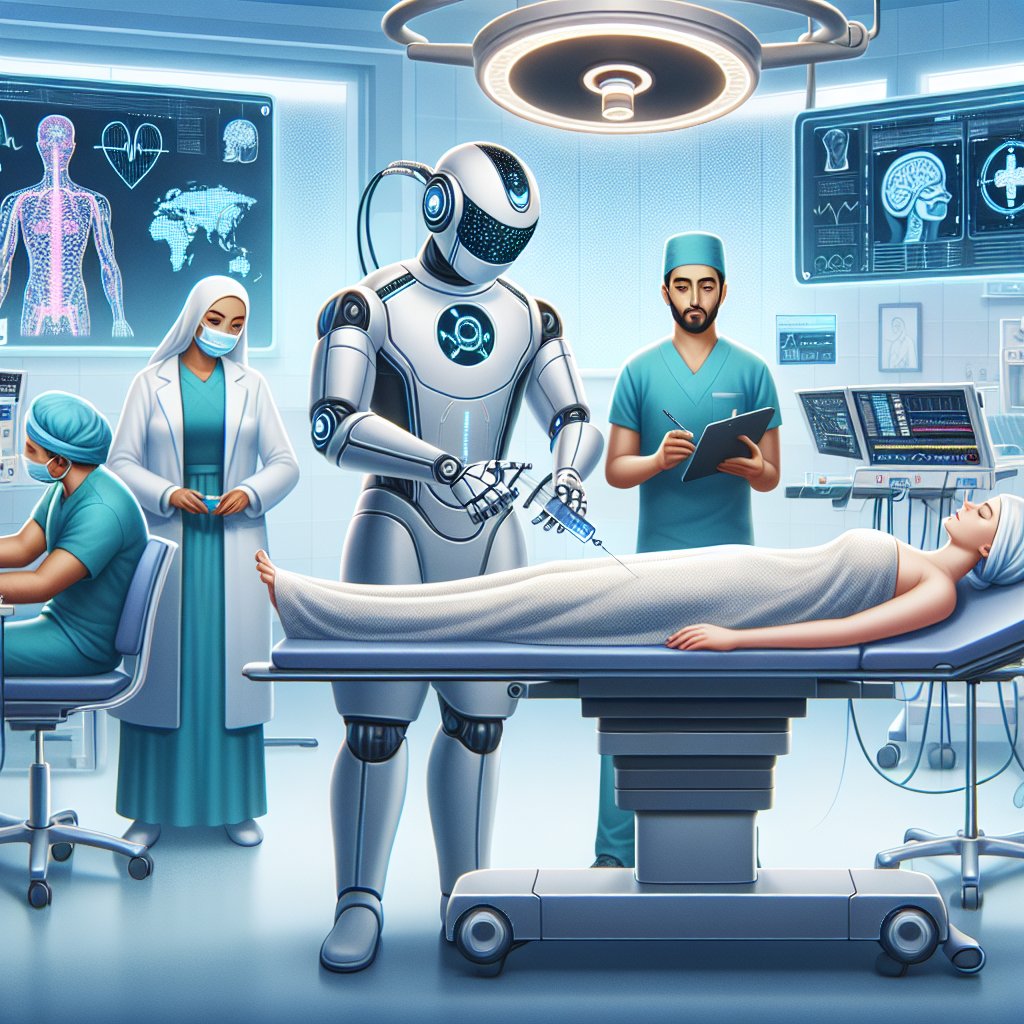The integration of AI into anesthesia aims to bring precision to patient monitoring, real-time data analysis, and personalized anesthesia management, potentially leading to improved outcomes and safety. While the debate about AI’s role in healthcare evolves, experts are considering how it might complement the expertise of anesthesiologists rather than replace them, ensuring that the human element remains at the forefront of patient-centered care.
Use of AI for Anesthesiologists
The integration of Artificial Intelligence (AI) into the medical field is revolutionizing the way healthcare is delivered, particularly in the realm of anesthesiology. AI’s advancements in patient monitoring, predictive analytics, and decision support systems are providing anesthesiologists with unprecedented tools to enhance patient safety and outcomes. These intelligent systems can analyze vast amounts of medical data in real time, assisting anesthesiologists in making more informed decisions regarding anesthesia management, pain control, and critical care protocols. The potential for AI to assist in complex surgical cases by predicting patient responses to anesthesia and optimizing dosages is a leap forward in customizing patient care.
As the medical community explores the forefront of technology, AI stands as a beacon of progress for anesthesiologists. By employing machine learning algorithms, anesthesiologists can now anticipate and mitigate potential complications during surgery, as these systems learn from each case and continually improve their predictive capabilities.
The potential for AI to replace Anesthesiologists
The integration of Artificial Intelligence (AI) into the world of healthcare has sparked discussions about its potential to transform various medical specialties. Among these is the field of anesthesiology, where the prospect of AI applications has generated both excitement and apprehension. As an anesthesiologist’s role extends beyond sedation to include the comprehensive management of patients during surgery, the complexity of their work poses significant challenges and opportunities for AI integration. Key questions have arisen on how sophisticated AI algorithms could impact the work of these medical professionals with the potential to offer advanced monitoring, personalized patient care, and enhanced decision-making during critical surgical procedures.
Exploring the potential for AI to replace anesthesiologists requires a deep understanding of both technology’s capabilities and the intricacies of anesthesiologic practice. While no technology can fully replicate the depth of human experience, AI systems are increasingly adept at interpreting complex medical data, suggesting that certain aspects of the anesthesiologist’s role could be augmented or even automated. This evolution could redefine the function of anesthesiologists in the operating room, potentially allowing them to focus on aspects of patient care that require their unique human expertise, while also considering how AI could assist in routine tasks and data analysis, leading to improvements in the quality, safety, and efficiency of anesthetic care.
How does AI assist Anesthesiologists in patient monitoring?
AI-assisted technology is revolutionizing the field of anesthesiology by enhancing patient monitoring and ensuring optimal outcomes during surgical procedures. Through advanced algorithms and machine learning, AI systems provide anesthesiologists with real-time insights into a patient’s physiological status, enabling precise adjustments to anesthesia, and reducing the incidence of human error. An AI system is capable of continuously analyzing vast amounts of data, such as blood pressure, heart rate, and oxygen saturation, alerting the anesthesiologist to any anomalies that may indicate distress or complications. This high level of vigilance helps maintain the stability of patients under anesthesia, which is critical for their safety and the success of the surgery.
Can AI improve the accuracy of anesthetic dosing?
The integration of Artificial Intelligence (AI) into medical practices is revolutionizing how healthcare is delivered, and anesthesiology is no exception. AI’s potential to enhance the precision of anesthetic dosing is a topic of significant interest among medical professionals. By analyzing vast data sets and identifying patterns beyond human capability, AI systems can help anesthesiologists tailor doses more precisely to individual patients. These smart algorithms take into account factors such as a patients medical history, physiological responses, and even genetic information, potentially leading to improved patient outcomes and a reduction in complications like underdosing or overdosing during surgical procedures.
Improvements in anesthetic dosing accuracy are critical, as they directly impact patient safety and the effectiveness of surgeries. AI’s advanced predictive models and machine learning techniques offer a promising future where personalized anesthetic plans could become the norm, thus minimizing risks and enhancing recovery times. The ability of AI to continuously learn and adapt from each case could mean real-time adjustments during surgeries, creating a dynamic system that supports anesthesiologists with informed decision-making. As AI technology evolves, it could become an invaluable assistant in the operating room, providing data-driven insights that uphold the highest standards of patient care.







